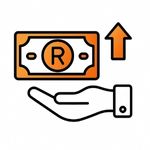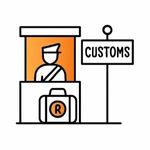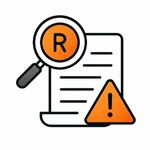
The South African Revenue Service (SARS) is the government agency responsible for collecting taxes and customs duties in South Africa. The money collected by SARS helps fund public services like healthcare, education, and transport. SARS ensures that individuals and businesses meet their tax obligations and that the country’s tax laws are followed. It also manages customs at borders, making sure goods brought into the country are properly declared. In recent years, SARS has made filing taxes and getting help easier through online services.
Key Takeaways
- SARS Collects and Manages South Africa’s Revenue: SARS is responsible for collecting taxes and customs duties to fund public services such as healthcare, education, and transport, while also ensuring compliance with tax and customs laws.
- SARS Has Simplified Taxpayer Services: SARS offers multiple registration and service options, including eFiling, mobile apps, online systems, and even WhatsApp, making it easier for individuals and businesses to register, file, and manage their taxes.
- South Africa Has Various Types of Taxes: SARS administers different taxes such as Income Tax, VAT, Capital Gains Tax, Provisional Tax, and Dividends Tax, with each type having its own rules, rates, and application depending on the income or transactions involved.
About Arcadia Finance
Find the right loan without the hassle through Arcadia Finance. With no application fees and access to 19 trusted lenders registered with South Africa’s National Credit Regulator, you’ll enjoy a smooth process and personalised financial solutions.
South African Revenue Service (SARS)
The South African Revenue Service (SARS) serves as the official agency responsible for managing the country’s revenue and customs operations. Its primary role is to collect tax revenue and ensure that individuals and businesses comply fully with the applicable legislation. SARS also oversees customs services with the aim of maximising revenue collection, protecting South Africa’s borders, and supporting lawful international trade.
The agency’s core duties include the collection and administration of all national taxes, duties, and levies, as well as enforcing measures to prevent the illegal import or export of goods. Through these responsibilities, SARS plays a vital part in maintaining the country’s economic stability and safeguarding legitimate business activities across South Africa.
Understanding SARS begins with knowing the basic legal requirements every South African must comply with, like providing your FICA documents. These documents are essential for identity verification in tax matters and banking, ensuring SARS can accurately track and manage your tax obligations.

The Main Functions of SARS

Collecting Revenue
The main job of SARS is to collect the money needed to run the country. Taxes from individuals, businesses, and organisations are gathered to fund services like healthcare, education, housing, and infrastructure. Without proper tax collection, the government would not have the money to deliver these services. SARS ensures that tax payments are made correctly and on time.

Enforcing Tax Laws
SARS monitors whether people and businesses are following South Africa’s tax laws. It checks that income is reported honestly and that the right amount of tax is paid. When SARS finds mistakes or signs of tax evasion, it can audit or investigate taxpayers. This enforcement helps to create fairness by making sure everyone pays their fair share.

Managing Customs at Borders
SARS controls what goods enter and leave the country. It checks imports and exports to make sure the correct customs duties and taxes are paid. SARS also works to stop illegal goods, counterfeit products, and banned items from crossing the borders. Managing customs properly helps protect South African businesses and the economy.

Educating Taxpayers
SARS provides education and support to help taxpayers meet their obligations. It offers information through its website, branches, and outreach programmes. By explaining how the tax system works, SARS helps people avoid mistakes and encourages better compliance when it comes to submitting returns and making payments.

Preventing Tax Fraud
SARS has dedicated teams that focus on preventing and detecting fraud. These teams track suspicious activities, uncover false claims, and take legal action against tax offenders. By taking fraud seriously, SARS maintains trust in the tax system and ensures that cheating is punished.
Since SARS closely monitors financial activities, your choice among the banks in South Africa can impact how efficiently you handle tax payments and refunds. Selecting a trusted bank can streamline dealings with SARS, from opening tax-free savings accounts to receiving refunds seamlessly.
How To Register For SARS
| Registration Method | Details |
|---|---|
| Automatic Registration For Personal Income Tax | When you first sign up for SARS eFiling and do not yet have a tax reference number, SARS will automatically complete your registration and issue you a tax reference number. To complete the process, you must have a valid South African ID document. Without it, you cannot proceed with the eFiling registration. You can also register for SARS eFiling by using the SARS MobiApp. This offers an alternative way to complete your registration from a smartphone or tablet. |
| Register On The SARS Online Query System (SOQS) | Individuals who need to register for Personal Income Tax can do so by submitting a request through the SARS Online Query System (SOQS). This platform allows you to complete your registration without needing to physically visit a branch. |
| Register Using The SARS USSD Services | The SARS USSD service allows users to access SARS functions directly from a mobile phone by dialling a specific code. To access these services, dial 1347277#. You will see a menu of options, including Personal Income Tax (PIT) registration, which you can select and complete directly from your handset. For full details on how to use this feature, you can refer to SARS Mobile Tax Services. |
| Register Using WhatsApp | Taxpayers can now use WhatsApp to start an interaction with SARS. Simply send a greeting such as “Hi” or “Hello” to the SARS WhatsApp number, and you will receive a reply listing the available services, including Personal Income Tax (PIT) registration. To use this method, you need to save the SARS WhatsApp contact number, 0800 11 7277, on your phone. |
| Register Through Your Employer With SARS eFiling | You can also ask your employer to register you for tax through their SARS eFiling profile. Employers are allowed to register employees for Income Tax, making it easier for individuals who are newly employed to be added to the tax system without needing to complete the process themselves. |
| Register At A SARS Branch Office | Another option is to visit a SARS branch where a service consultant will assist you in registering for tax. Appointments may be required, and you will need to bring your South African ID and other supporting documents such as proof of address and, if necessary, proof of income. |

10 Types of Tax in South Africa
Income Tax
Income Tax is applied to all earnings and profits generated by individuals, companies, and trusts. Several specific taxes fall under the Income Tax Act, including:
- Capital Gains Tax
- Donations Tax
- Provisional Tax
- Pay-As-You-Earn (PAYE)
Local companies are taxed at a flat rate of 28%, individuals are taxed at progressive rates between 18% and 45%, and trusts (excluding certain special trusts) are taxed at 45% on their profits.
Value-Added Tax (VAT)
Value-Added Tax is charged on most goods and services at a standard rate of 15%. However, certain goods are zero-rated, such as exports, petrol, diesel, and basic foodstuffs like brown bread, milk, and fruit. Some services are also exempt from VAT, including educational services, public transport, and the rental of residential properties.
You know who collects your taxes, but do you know how to get your money back? Check out Where’s My Tax Refund? to track your hard-earned cash and make sure it’s on its way!
Capital Gains Tax
Capital Gains Tax is payable when an asset changes ownership. This typically occurs when selling property, shares in a company, or other investment assets. The gain, which is the difference between the purchase price and the selling price, is included in the taxpayer’s income for the relevant year.
Provisional Tax
Provisional Tax is a method of paying tax in advance, based on estimated annual income. Companies are automatically classified as provisional taxpayers, and individuals who earn income other than a salary, such as rental or investment income, must also register.
Three payments are required each financial year:
- The first payment after six months,
- The second payment at the end of the financial year,
- The third and final payment six months after the year-end.

PAYE (Pay-As-You-Earn)
PAYE refers to the system where employers deduct tax from employees’ salaries each month. The deducted amounts are paid directly to SARS on behalf of the employee. This system spreads the employee’s tax payments over 12 months, rather than requiring a lump sum payment at the end of the tax year.
Transfer Duty
Transfer Duty is charged when an individual purchases property, and it is calculated on a sliding scale ranging from 0% to 13% depending on the property’s value. Transfer Duty must be paid within six months of acquiring the property, failing which penalties may apply.
Customs and Excise Taxes
Customs duties are imposed on goods imported into South Africa to generate revenue and protect local industries. Excise duties and levies apply to specific locally produced goods, including:
- Petroleum products,
- Alcoholic beverages,
- Tobacco products,
- Luxury items like electronics and cosmetics.
An additional aim of these taxes is to discourage the consumption of products harmful to health or the environment.
Donations Tax
Donations Tax is payable by a South African resident when they dispose of property by way of a donation, whether direct or indirect.
Donations are taxed at a flat rate of 20% on the value of the donated property. However, donations up to R100,000 per year are exempt, provided they are made in cash or in kind.
Turnover Tax
Turnover Tax offers a simplified tax system for qualifying small businesses such as sole proprietors, partnerships, companies, and close corporations. It is only available to businesses with an annual turnover of less than R1 million.
Unlike standard taxation based on profits, Turnover Tax is calculated on the business’s total income before expenses. Businesses must meet SARS’s specific conditions to qualify and register for this system.
Dividends Tax
Dividends Tax applies when companies or close corporations pay dividends to their shareholders or members. The tax is withheld by the company or by an appointed regulated intermediary before the payment is made.
A dividend refers to any distribution by a company to a shareholder, or by a close corporation to a member, relating to the ownership of shares or member’s interest.
Conclusion
The South African Revenue Service (SARS) plays a central role in maintaining the country’s economy by collecting taxes and managing customs operations. Through its work, SARS helps fund vital public services and ensures that tax and customs laws are properly enforced. Over time, SARS has introduced modern systems to make tax registration, filing, and payment easier and more accessible for individuals and businesses. With a wide range of taxes administered and various support tools available, SARS provides the framework for ensuring that South Africans meet their financial obligations to the state in a fair and efficient manner.
Frequently Asked Questions
The South African Revenue Service (SARS) is responsible for collecting taxes, managing customs duties, enforcing tax legislation, providing assistance to taxpayers, and investigating tax fraud. Its work ensures that the government has the revenue needed to fund essential public services and maintain economic stability.
Any individual or business earning taxable income in South Africa is required to register with SARS. This includes people employed by companies, freelancers, sole proprietors, landlords earning rental income, and investors receiving income from dividends or interest.
You can register for eFiling by visiting the SARS eFiling website, completing the registration form, and submitting your details online. You will need a valid South African ID and other supporting information.
SARS administers several taxes including Income Tax, VAT, Capital Gains Tax, PAYE, Customs Duties, Excise Duties, and Dividends Tax. Each type of tax has specific rules and applies depending on the income or transactions involved.
Yes, SARS has introduced several mobile services to make interaction easier. You can use the SARS MobiApp for smartphones, access services via USSD by dialling 1347277#, or send a message to the SARS WhatsApp number 0800 11 7277 to receive assistance with services such as tax registration and filing.
Fast, uncomplicated, and trustworthy loan comparisons
At Arcadia Finance, you can compare loan offers from multiple lenders with no obligation and free of charge. Get a clear overview of your options and choose the best deal for you.
Fill out our form today to easily compare interest rates from 19 banks and find the right loan for you.



